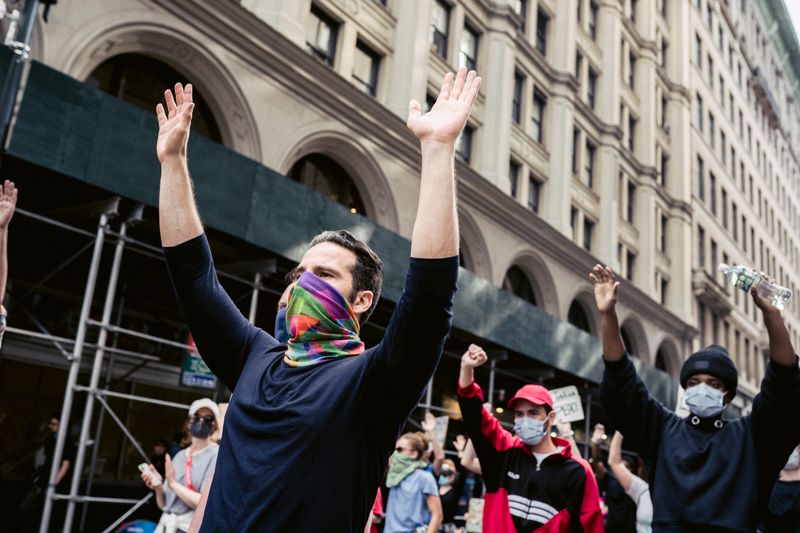France Shooting: Policeman Charged Over Teen’s Traffic Stop Death
A French policeman has been charged with homicide and is now in custody over the killing of a teenager during a traffic stop near Paris on Tuesday. The 17-year-old, named as Nahel M, was shot at point-blank range as he drove off and crashed soon afterwards. Anger at his killing has sparked violence across the country. A march led by the boy’s mother was marred by clashes on Thursday afternoon. In a third night of unrest, 667 people were arrested, French officials say. In Paris, shops were ransacked and cars set on fire overnight despite a heavy police presence. Across France, 40,000 police officers were deployed, with 249 of them injured in Wednesday night’s clashes, according to the interior ministry.
Investigating the Tragic Death of Nahel M
The death of Nahel M has sparked outrage and unrest across France, highlighting the deep-seated issues surrounding policing and the relationship between authorities and marginalized communities in the suburbs. The youth’s killing has sparked a wider conversation about the power dynamics at play and the culture of impunity that some argue exists within law enforcement in France.
“We have a law and judicial system that protects police officers and it creates a culture of impunity in France,” said Yassine Bouzrou, Nahel’s lawyer. This sentiment echoes the concerns voiced by many who feel marginalized and segregated from the prosperous city centers.
However, Nahel’s mother has taken a more measured approach, expressing that she does not blame the police force as a whole or the system itself. She places the responsibility solely on the officer who fired the lethal shot that took her son’s life. The officer, who has been charged with homicide, claims he fired because he felt his life was in danger.
The Power of the Police and Relation to Marginalized Suburbs
Nahel’s tragic death has ignited a larger debate about the power dynamics between the police and the marginalized communities residing in France’s suburbs. Residents living in these areas often feel overlooked and ostracized from the prosperous city centers. This tragedy has only intensified the social unrest, prompting protests and clashes with the authorities.
Prime Minister Élisabeth Borne condemned the violence, stating that “nothing justifies the violence that’s occurred.” While acknowledging the emotional response to Nahel’s death, she urged for a peaceful resolution to this deeply rooted issue.
Examining the Culture of Impunity and Proportionality
The case of Nahel M’s killing has raised questions regarding the culture of impunity and the concept of proportionality when it comes to the use of force by the police. Thierry Clair, deputy secretary general of Unsad-Police trade union, emphasized the need for an investigation to determine whether the officer’s use of a firearm was legal or illegal.
According to Clair, French law allows police officers to use their weapons in certain circumstances but emphasizes the principle of proportionality with regards to the nature of the threat. The incident involving Nahel M, where a weapon was used, will need careful scrutiny to determine whether it aligns with the legal framework.
Editorial: A Call for Justice and Change
The tragic death of Nahel M calls for justice and systemic change in France. It is essential that the investigation into the killing is conducted thoroughly, transparently, and without bias, demonstrating that no one is above the law. This includes holding accountable those responsible for the excessive use of force and addressing the root causes of discontent and mistrust in marginalized communities.
The French government must work towards building trust between law enforcement and the citizens they serve, particularly in the suburbs, by fostering dialogue, implementing community policing strategies, and addressing the economic and social disparities that perpetuate injustice. This is an opportunity for France to assess its policing norms, ensure accountability, and strive for a more just society.
Only by acknowledging and addressing the concerns of marginalized communities can France truly move towards a more equitable and inclusive society, where the police serve as protectors rather than sources of fear and violence.

<< photo by Life Matters >>
The image is for illustrative purposes only and does not depict the actual situation.
You might want to read !
- Zac Goldsmith Resigns: Unleashing a Fiery Assault on Rishi Sunak’s Climate Policies
- London Mayor Hopeful Daniel Korski Accused of Sexual Assault: Exploring Allegations and Accountability
- The Unveiling of a New Suspect: Revisiting the Stephen Lawrence Case’s Notoriety
- “Mysterious Circumstances Unveiled: Analyzing the Coroner’s Inquest into the Lancashire Mum’s Tragic Death”
- Scottish Harry Potter Stars: From Prison to Tragic Death, Where Are They Now?
- “Tragic Death of Russian Man Mauled by Shark in Sharm El-Sheikh Raises Questions About Tourist Safety”




